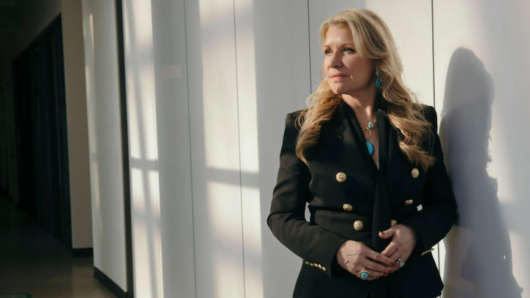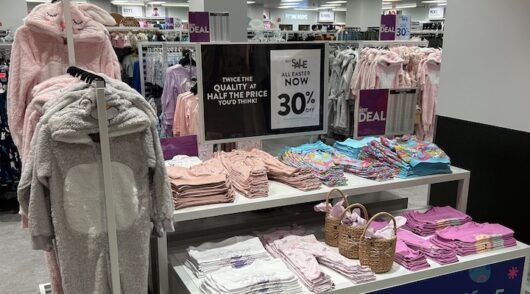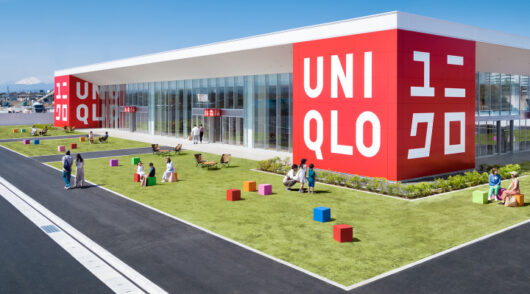Times might be tough for many Australians right now, but when it comes to gift-giving consumers will still be spending this year – however, they will be very focused on value.
Those are among the key findings from a survey commissioned by Gift Flick – the instant digital gifting service – and Inside Retail, which quizzed 750 Australian consumers about their gift-giving intentions now, and in the leadup to Christmas.
“The key takeout from the survey is that total gift sales are likely to be impacted by consumer cost-cutting across every retail category – which is probably no real surprise to most of us,” explains Helen Marsh, co-founder and CMO at Gift Flick.
“The survey findings signal that no retailer is immune from the fallout of cost-of-living concerns with a net negative change in spending intention across every category.
“But what is interesting is how personalisation ranked high in terms of consumer appeal when it comes to gifting: Personalisation of the gift item itself, the gift wrap, and the gift delivery mechanism,” says Marsh.
“It’s clear that retail strategies that increase the emotional impact of gifts can be effective at increasing online sales without having to reduce prices, and personalisation is the key to enabling greater emotional impact.”
Gift-giving is a deeply ingrained human tradition that conveys love, affection, and appreciation, however, the financial constraints imposed by the currently high cost of living introduce a range of difficulties impacting the emotional context of the act, the report concludes.
One of those is a sense of guilt that consumers might get from splurging on gifts for others, rather than putting the money towards essential bills or savings for the future.
“On the flip side, recipients may grapple with similar emotions when presented with gifts during a period of high living costs,” the report finds. “While they may genuinely appreciate the sentiment behind the gesture, they may also feel guilty or burdened by the knowledge that someone sacrificed their own financial stability to provide a gift.”
Unsurprisingly, the survey found that a majority of consumers are adjusting their behaviour. The bottom line: nine out of 10 say they will make a greater effort to get better deals and 93 per cent will be cutting back on non-essentials. Just over half will choose lower-quality items to save money.
However, the type of gift-giving occasion is influencing consumers’ buying decisions. For example, people are less likely to cut back spending on birthday presents – considered intensely personal – as they might on Christmas gifts. “The occasion matters,” observes Marsh.
About one in three people surveyed (35 per cent) said they expect to spend less on their parents or siblings – but pets face a bleak future, with 53 per cent of respondents likely to spend less on the furry members of their family.
In terms of actual spending, budgets vary according to the occasion. The biggest average spend was $95 for a wedding gift, followed by $73 for a birthday or Christmas present for a family member. For the birth of a child, $63 is the average (with males prepared to spend $68 and females $57) while a friend’s birthday warrants a $50 average spend.
On a brighter note, one in 10 respondents said they plan to spend more.
Marsh advises retailers to consider both the average spend and the spending spread (detailed in the report) when deciding what to range for Christmas. While the average spend might offer a sound median target, there are still consumers willing – or able – to spend more, even in these economically tight times.
The migration online
Online is widely expected to draw an increasing share of the nation’s gift-giving spending this year – and not just because a large proportion of consumers who migrated online to shop during the Covid-era lockdowns have continued to shop there.
Marsh says the report highlights that 90 per cent of respondents consider online shopping offers “a better deal” – significant at a time when 83 per cent are looking at ways to reduce their non-essential spending. Thirty per cent of respondents said they planned to shop for gifts online.
“Interestingly, people who already shop online are planning to do so even more,” the report reveals. “This has important implications for retailers offering rewards programs – which are typically highly used by frequent online shoppers – because they can be an effective means of communicating deals.”
The report also suggests a ready market for Gift Flick’s unique instant digital gift wrap service, an e-commerce plug-in that enables personalisation quickly and simply and costs retailers as little as $1.50 per transaction.
Marsh says money-saving strategies like cashback might encourage consumers to shop online, but acknowledges that – facing tighter margins – such options may not be their preferred strategy.
Solutions that are potentially more cost-effective and that help shoppers get a greater emotional response – “more bang for their buck” – include offering personalised items (43 per cent), being able to write a personal message with a gift (39 per cent), and being able to choose gift wrapping for the present (also 39 per cent). The opportunity for the recipient to be able to open a digital gift card and see their present while the real one is on its way appealed to 31 per cent.
“The big takeout from this is that strategies that increase the emotional impact of gifts can be effective at increasing online sales without having to reduce prices,” says Marsh.
“For many consumers, thinking about what to buy, for whom, at the right price can be a stress-inducing experience, not to mention the act of shopping, wrapping and delivering to the recipient in time for the big occasion. Buying for all the family at Christmas can be tough.
“Gift Flick’s instant digital gift wrap service was created to relieve some of these stresses and is available to shoppers at many of Australia’s leading online stores, including Country Road, David Jones, Endota Spa, and Red Balloon.
“The act of gift giving has been deeply ingrained in our culture for centuries as a way to express love and care and to build and reinforce relationships,” concludes Marsh.
“For many, gift giving and receiving is a deeply personal exchange – one which will continue no matter how big or small our wallets are.”
Discover more about Gift Flick here.






